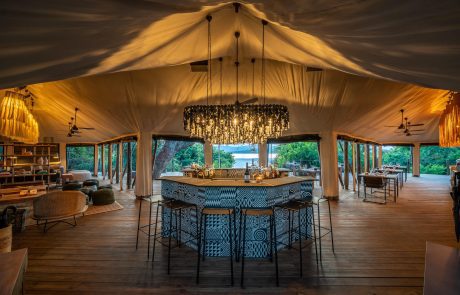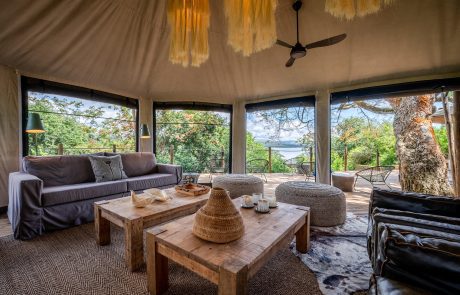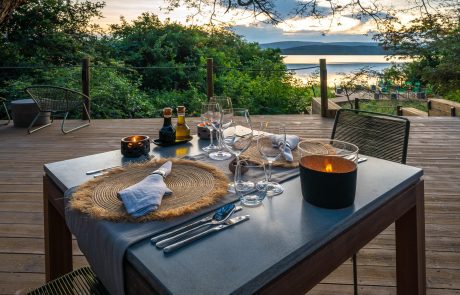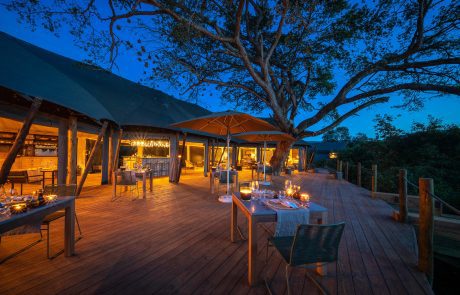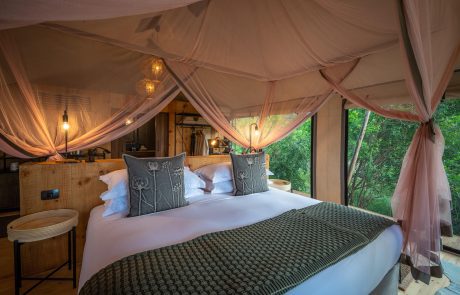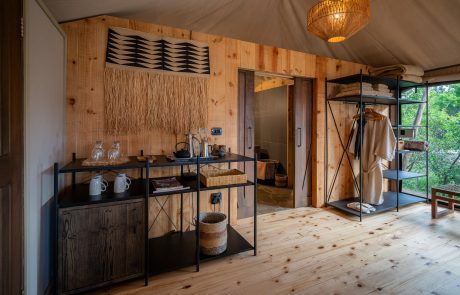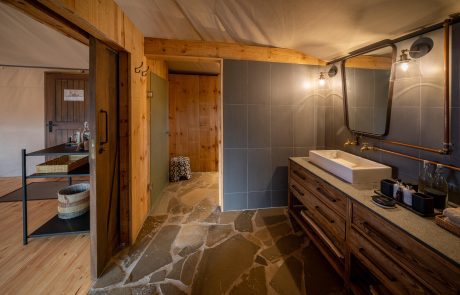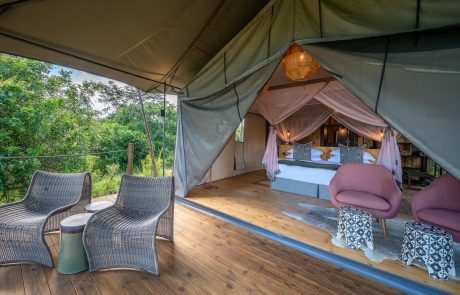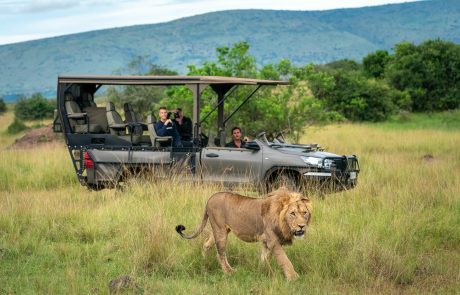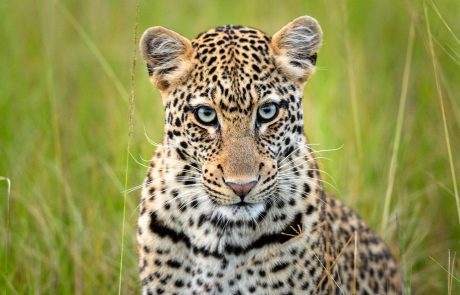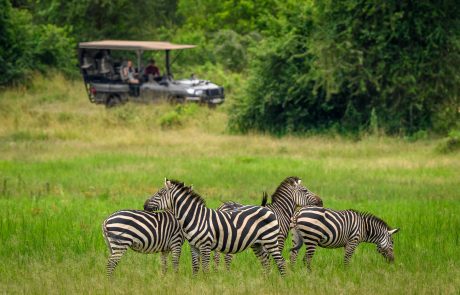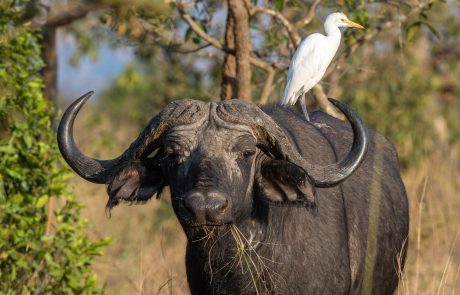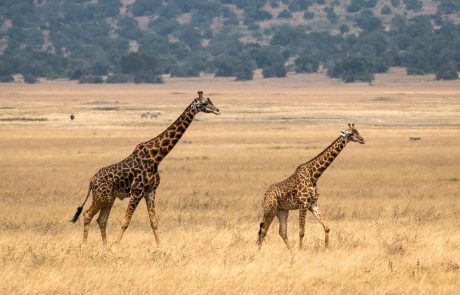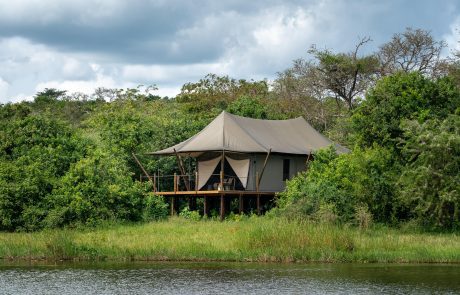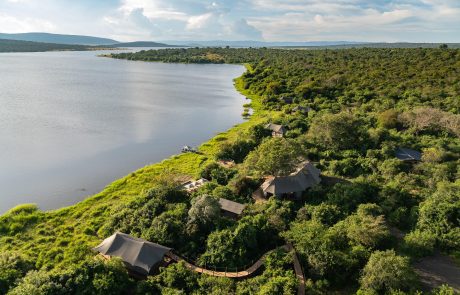HIGHLIGHTS
WHAT WE LOVE
Thousands of hectares of exclusive-use land in Akagera National Park
Chance to participate in monitoring black rhino, leopard and lion
Right on beautiful Lake Rwanyakazinga with well-spaced tents
WHEN TO VISIT
Peak Season⊕: June to September
Green Season⊕: October to May
CONSERVATION & COMMUNITY
Rare species conservation
Educational and sporting supplies for rural communities
Alien plant removal
Actively rooting out invasive and alien species from the Magashi Peninsula
OVERVIEW
It’s like something out of the movies… Your boat crosses Lake Rwanyakazinga, encircled by the mountains of the Magashi Peninsula, to land you on the shore, your tent secluded by pristine forest. Calls from the 500 bird species ring out and, if you’re lucky, you might already spot Defassa waterbuck, Masai giraffe, topi and shoebill storks on the shore.
What makes Magashi even more special is that there are only a handful of tents, meaning guest and vehicle numbers are very limited. Akagera National Park is off the beaten track, making it a true gem for wildlife lovers. The camp has been designed with muted colours from nature with traditional imigongo patterns in black, white and ochre providing tonal accents.

